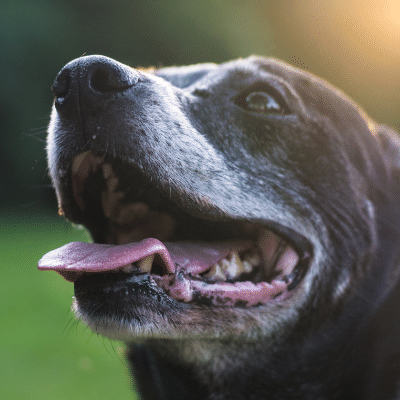November is National Adopt a Senior Pet Month

Caring For Your Senior Dog
We celebrate National Adopt A Senior Pet Month during November. It is a way to remind people of older cats and dogs in shelters and waiting for a home. Sorry in advance, but I need to pull on your heart strings a bit here:
If you are thinking about getting a pet, consider opening your heart to a senior dog. Puppies and kittens are cute, but teething, potty training, standard training, are sometimes simply things that you don't want to do... Older dogs are generally easier to handle, and they are as loyal and loving as any dog.
If you already have one, you love your older dog. In this post we will get into a few tips and tricks for taking care of your senior dog.
History of National Adopt a Senior Pet Month
My bet is that 9 of 10 people walking into a pet shelter are looking for cute little puppies. Older dogs aren't as desirable, for one reason or another. Energy level definitely comes into play, as old dogs get tired compared to young pups.;
Older dogs spend the most time in shelters. But due to their "undesirability," older dogs are easier to adopt. That's a huge plus, as the pet adoption process seems to move slower by the day.
The ASPCA and petfinder.com founded November's Adopt a Senior Pet Month. These organizations founded this month to improve the public's view of senior pets. It was a major push to encourage folks to adopt senior pets. You can give a great life to a senior pet.
Many people think older dogs are in shelters because they bit someone or misbehaved. But there are many reasons why a pet would end up in a shelter. Many of these senior pets were someone's best friend. People growing old, money issues, and moving houses can disrupt a pet's life. It can make owners feel the need to put these dogs up for adoption. these pets have much to offer, and they are often adaptable. A puppy can be destructive and very hard work to keep up with. An older pet can fit into your lifestyle with little fuss and be a loving companion to you in its new home.
Now I've Got A Senior Dog, Any Tips?
-
Double up on Vet visits
Don't wait until it's too late. Elderly dogs can have health issues that you need to stay on top of. Most vets recommend a check-up every 6 months.
-
Supplementation
Dog owners supplement their diet in many ways. Some of the more common supplements are glucosamine, chondroitin & MSM. Also, omega-3 fatty acids help in joint & brain health. I take omega-3's every morning!
-
Try a Raw Diet
As always, consult your Veterinarian before a big change in your dogs diet. But many vets out there are advocating for a move away from kibble, and even wet food. Lots of vets are embracing a "whole food" style diet for their elderly dogs, to help gut health and digestion.
Bone Broth: Making Bone Broth is easy to do in your kitchen. It takes a while, but it's actually not bad. Homemade bone broth is great for bone and joint support- for both you and your dog. It's got all that good stuff that mammals need to keep bones strong and healthy.
Toss Some Greens on There: Yes, you too, reader! Hide some steamed greens in your dog's dinner. Kale, broccoli, and baby spinach are all palatable good ideas. Since many senior dogs are prone to anemia, the iron content will be a big help. They also are a great natural source of other necessary vitamins..
-
Supplementation
Omega 3's: Let's start with the beginner stage. We all know that foods high in Omega-3s, such as fish and egg yolks, are very helpful in brain & body health. If you aren't ready to make your dog meals from scratch, you can start with supplementation.
Digestive Enzymes and Probiotics: Your dog can't absorb what it can't digest- that's a fact. Giving your dog digestive enzymes or probiotics can support your dog's digestive health.


Share:
Dog Sitter or Dog Kennel? Which is Better For Your Dog?
Keeping Your Older Dog Happy